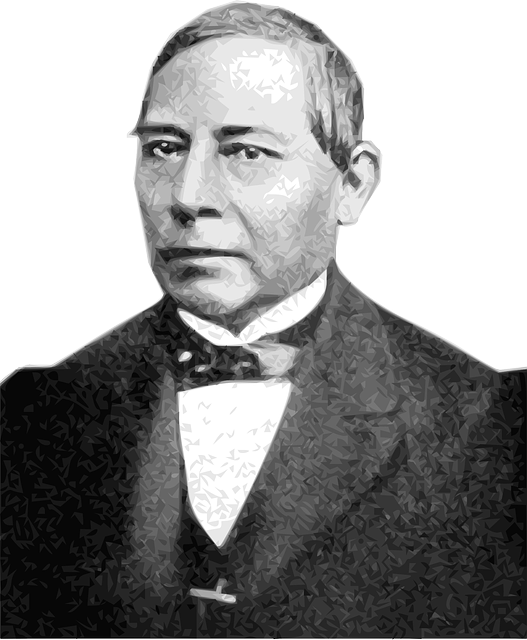Fraudulent financial practices, like accounting fraud and insurance claims manipulation, pose significant risks to individuals, businesses, and economies. To combat these issues, adhering to the Importance of Due Process in Court is crucial. This ensures fairness, protects businesses from schemes, mitigates losses, promotes transparency, and fosters security within financial markets. By providing a structured framework for investigations and trials, due process prevents innocent parties from complicity and strengthens public trust in the legal system, deterring potential perpetrators and addressing high-stakes white-collar offenses effectively.
“Uncovering fraudulent financial practices is a complex yet critical task, with far-reaching implications for individuals and businesses alike. This article explores the intricate web of deceptive activities, from understanding their defining characteristics and impact to delving into effective detection methods. We scrutinize the role of due process as an indispensable tool in court, highlighting its significance in legal frameworks. By examining common fraud techniques and best practices, we aim to illuminate strategies for prevention, ensuring a robust defense against fraudulent financial practices.”
- Understanding Fraudulent Financial Practices: Definition and Impact
- The Role of Due Process in Uncovering Fraud
- Legal Frameworks and Their Significance in Court
- Common Techniques Used to Detect and Prevent Fraud
- Protecting Individuals and Businesses: Best Practices and Future Prospects
Understanding Fraudulent Financial Practices: Definition and Impact

Fraudulent financial practices refer to a range of deceptive acts intended to gain illicit advantages through manipulation of financial systems and information. These practices can take various forms, from accounting fraud and investment scams to embezzlement and insurance claims manipulation. Understanding these schemes is paramount as they can have severe implications for individuals, businesses, and the economy at large. The impact extends beyond financial losses, often leading to legal consequences, reputational damage, and a loss of public trust.
The importance of due process in court cannot be overstated when addressing fraudulent financial practices. All stages of the investigative and enforcement process must be meticulously followed to ensure fairness and achieve extraordinary results. By adhering to these procedures, respective businesses can protect themselves from such schemes, mitigate potential losses, and contribute to a more transparent and trustworthy financial landscape. This approach is crucial in maintaining the integrity of financial markets and fostering a sense of security among participants.
The Role of Due Process in Uncovering Fraud

The importance of due process in court cannot be overstated when it comes to uncovering fraudulent financial practices. It serves as a cornerstone in the fight against white-collar and economic crimes, ensuring that justice is served for both corporate and individual clients across the country. Due process provides a structured framework that guides investigations, allowing law enforcement and legal professionals to navigate complex financial cases meticulously. By following this due process, they can collect evidence, interview witnesses, and build robust cases that stand up in court.
This meticulous approach is crucial in exposing fraudulent schemes as it helps to prevent the complicity of innocent parties and ensures that convictions are based on solid, admissible proof. The role of due process extends beyond individual cases; it also sets a precedent for deterring potential perpetrators by demonstrating that financial crimes will be thoroughly investigated and punished. This is essential in maintaining public trust and confidence in the integrity of the legal system, especially when dealing with high-stakes white-collar offenses.
Legal Frameworks and Their Significance in Court

Legal frameworks play a pivotal role in navigating fraudulent financial practices and ensuring justice in court. These comprehensive sets of rules and regulations provide a structured approach to addressing complex white-collar crimes, such as embezzlement, securities fraud, and money laundering. The significance of due process becomes evident throughout the investigative and enforcement process. It guarantees that all parties involved have the right to be heard, ensuring fairness and safeguarding against arbitrary decisions.
Understanding these legal frameworks is crucial for both general criminal defense attorneys and specialized white-collar defense experts. They enable professionals to navigate the intricate aspects of financial crimes, challenge evidence, and develop robust defenses. By adhering to due process at every stage, from investigation to trial, these practitioners ensure that the rights of the accused are protected while holding perpetrators accountable for their fraudulent activities.
Common Techniques Used to Detect and Prevent Fraud

Fraud detection and prevention strategies have evolved over time, employing a myriad of techniques to stay ahead of cunning perpetrators. One of the cornerstones in this fight is the importance of due process in court. By adhering to strict legal procedures, investigators can ensure that evidence is gathered and presented properly, minimizing the risk of wrongful convictions or acquittals. This includes meticulous documentation, witness interviews, and the use of advanced data analytics to identify anomalies.
Additionally, a robust defense strategy for winning challenging verdicts plays a vital role in deterring potential fraudsters. Legal professionals can help clients navigate complex regulatory environments by advising on best practices, conducting internal audits, and implementing robust internal controls. For both corporate and individual clients, this might involve enhancing transparency, fortifying data security measures, and fostering a culture of ethical conduct. These proactive approaches not only protect respective businesses but also contribute to a more reliable and trustworthy financial ecosystem.
Protecting Individuals and Businesses: Best Practices and Future Prospects

Protecting individuals and businesses from fraudulent financial practices is paramount for maintaining economic stability and trust. Best practices involve a multi-faceted approach that includes stringent due process in court, robust internal controls, and regular audits. By adhering to strict protocols at all stages of the investigative and enforcement process, institutions can mitigate risks effectively. The importance of due process cannot be overstated; it ensures fairness, transparency, and the integrity of financial transactions, fostering an environment conducive to economic growth.
Looking ahead, the future of fraud prevention hinges on leveraging technology and data analytics to identify patterns and anomalies. An unprecedented track record of success in combating fraudulent activities can be achieved through innovative strategies that integrate advanced tools with seasoned investigative techniques. Each respective business must remain vigilant, adopting proactive measures to safeguard their operations and contribute to a more secure financial landscape.
In conclusion, fraudulent financial practices pose a significant threat to individuals and businesses alike. Understanding these practices, their impact, and implementing robust legal frameworks are paramount. The role of due process in court is invaluable for uncovering and preventing fraud, emphasizing its importance in maintaining economic integrity. By leveraging common detection techniques and adopting best practices, we can fortify defenses against evolving fraudulent schemes. Looking ahead, continued development of legal strategies and educational initiatives will be crucial to safeguard financial systems and protect vulnerable parties.






